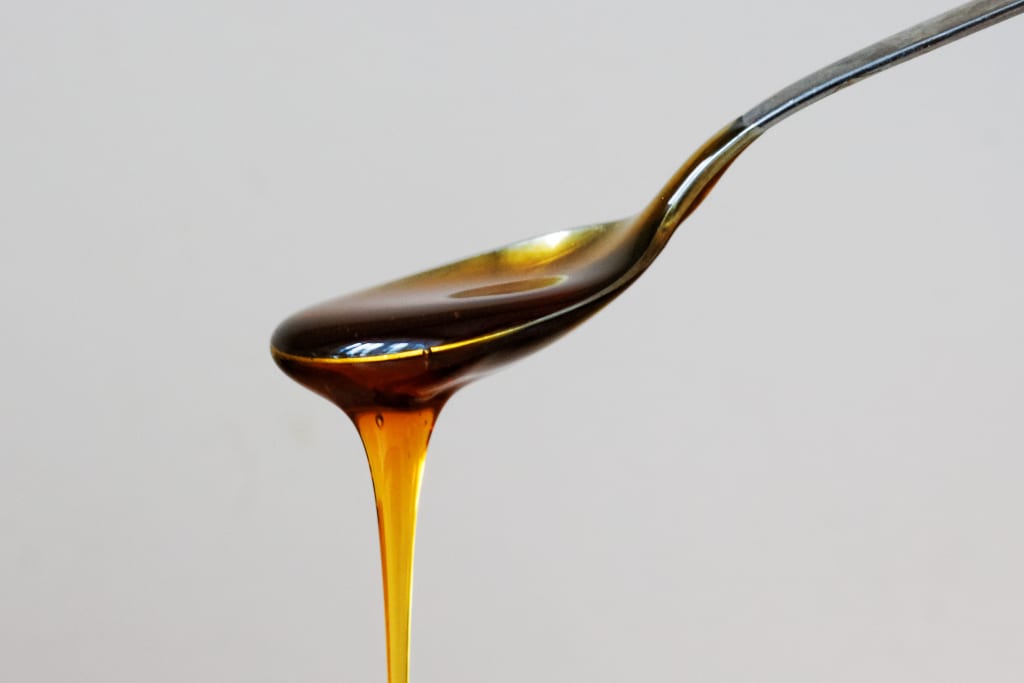Have You Read This Yet? 'Milk and Honey' by Rupi Kaur (Pt. 2)
After opening our minds with The Hurting, Rupi Kaur encourages us to open our hearts as she continues her story.

In the first article of this series, I introduced the book Milk and Honey, a book mixed of poetry and an autobiography. The stark truths were hard to swallow as they came relentlessly and without embellishment. Plain, concise, and simple the truths were hard hits that compelled me to continue reading. Now, for the readers, the next section will be reviewed and hopefully give even more reasons to go and pick up that book from the shelves. We continue, with the loving.
The Fall
The loving immediately sets a tone that is in direct odds with the chapter before it. The father she had spoken of before as a gruff, emotionally closed off man is seen through the eyes of a very young Kaur. Her mother is pregnant with her younger sibling, and when she expresses curiosity, as all young children are prone to do, her father tells her, "the closest thing to god is a woman's body it's where life comes from . . ." (Kaur, 2015, pg. 45). From there it veers off sharply, leaping forward in time to Kaur as a woman set afire. This is a tale of Kaur's great love:
"You might not have been my first love but you were the love that made all the other lovesirrelevant." (Kaur, 2015, pg. 65)
In it she recounts, as if she was living it over with her readers, the passion and fierce devotion that she willingly consumed and allowed to consume her. She tells him, "You are every hope I ever had in human form" (Kaur, 2015, pg. 49). The emotions her lover invokes in her are ones those who've gotten punch drunk on the honeymoon phase of love remembers well.
It is a feeling that leaves one feeling emboldened and overwhelmed simultaneously, a feeling she describes well in the stanza, "I know I should crumble for better reasons but have you seen that boy he brings the sun to its knees every night."
Kaur marvels at how well he reads her, how deeply he wishes to get to know her. The connection that goes far past physical, into the emotional and mental, is one that colors her core with the sunrise of newly exposed horizons, and she notes ". . . he didn't call me beautiful first he called me exquisite" (Kaur, 2015, pg. 54). Their chemistry is without question, the reactions their connection causes leaving her thoughtful. "How do you turn a forest fire like me so soft I turn into running water." It would be a question if she weren't so awed, so grateful in their connection that there is little else to do but bask in the sensation.
Kaur expresses a particularly interesting sentiment, saying that ". . . I do not want to have you to fill the empty parts of me I want to be full on my own . . . and then I want you . . ." It's a strong and important idea to go over. Kaur has shown us in The Hurting her experiences with those who would hurt her and use her; it is human nature to shy away from things that hurt you. With this idea she reminds us that even in the rose-tinted world of her great love affair she will not lose herself to such a degree where she does not remember what came before, what she overcame to possess this beautiful experience. It's an idea for relationships that is gaining traction in the world today, as people empower themselves and realize that you can only use someone else's validation for so long. Sometimes, a person can't see what they are truly worth, and if someone else can help you see it, great, but you should never permanently rely on others to validate you. Eventually, the light that was cultivated and nurtured in you should be big enough to stand alone.
What makes it even better is the fact that her lover seems to agree, and prizes her character and strong presence. She writes one of her rare lengthy poems on page sixty-two, detailing a brief conversation between herself and her man as he asks what she does. She went for the usual answer: her job. Her lover did not want such a banal answer though, and pressed deeper into what she did that pulled her like the tide, what comforted her and empowered her. The answer was simple. The answer she gave though, while true in a sense, was a smokescreen he saw through. As she trailed kept her fingers lightly upon his arm, and with a downward stroke drew him to her with eyes and fingertips like the ocean to the moon before releasing him as if out of a dream, he realized what she did. "So that's what you do you command attention" (Kaur, 2015).
The Crash

"I want to be so complete I could light a whole city."
It took me three readings to catch this, but from page sixty-six to sixty-seven, there is a very subtle, barely there, shift in mood. It is so faint, like cobwebs, and maybe it isn't really there but . . . maybe it is insignificant, and yet . . .
"you look like you smell of
honey and no pain
let me have a taste of that." (Kaur, pg. 66)
"your name is
the strongest
positive and negative
connotation in any language
it either lights me up or
leaves me aching for days." (Kaur, pg. 67)
(On the bottom of the page, there is a hand drawn illustration of a campfire. It meant nothing to me at the first reading, but by the third, when the cobweb caught my eye, so too did the campfire. Campfires are typically harmless when taken care of appropriately. Small, docile, and easily controlled should no one mess around too much. Still, fire is an image that invokes a small primal response: wariness. The campfire is all too easy to let go of, to let burn out of control. What else comes with a fire? Smoke. The smell of which is either alarming or a balm. The nature of which, clouds the real issue.)
The idea that there is pain in her love seems jarring, and then you chastise yourself. There is no such thing as a love without problems, of course there would be some days that are harder than others! To call it pain is dramatic, there are more than likely spats and growing pains in a love as grand as this. The cobweb is brushed aside, and you continue reading, walking further down this path without realizing there are more cobwebs, that there is actually a web preparing to snare someone new.
The following pages do not help that off-kilter feeling, in fact it only grows. Most of the pages focus exclusively on the physicality of their relationship. Kaur emphasizes only what he can do to her body, when before Kaur would gladly go on about their mental and emotional connection. Kaur confides, "I want your hands to hold not my hands . . . but other places" (pg. 73) which seemed a far cry from when she said "he placed his hands on my mind before reaching for my waist" (Kaur, 2015). The two statements, seem, out of context, to still be lovely views and not something to feel off about. However, the reader can almost feel the change in tone, the change in the atmosphere which gives the two outwardly similar statements such different meanings. "You talk too much he whispers in my ear I can think of better ways to use that mouth" (Kaur, 2015, pg. 68). Again, you tell yourself it does not mean anything more than what it is because you're still not certain. That cobweb is still gossamer thin. It could be a playful thing. After all, Kaur mentioned earlier how he loved her commanding attention didn't he? How he wanted to know the deepest part of her?
The only passage that stands out as different in this unsettled half is when Kaur (2015) talks about the kind of lover she needs, "I need someone who knows struggle as well as I do . . . who gives exactly what I need before I even know I need it . . . who hears me even when I do not speak . . ." (pg. 74). And the reader thinks, does she not have that already? The pages before were just gushing praise of her lover; is there a reason she talks about the kind of lover she needs now?
The culmination of the loving is jarring, and yet somehow torn. As if Kaur herself was strung tight between two paths. Where the ending of the hurting was expected, this one came out of left field. The last two pages are the longest passages she has wrote thus far, and here the reader should note the use of parallel structure. Take in that though the grammar has a repeating flow, the narrative it brings to life swings like a pendulum. This last act of the loving is a stark, bald reveal. The problems in their relationship that had grown unseen beneath the honeyed glow of their blooming love, and had been smoothed over and smothered by avoidance of the issue. Perhaps that was where the sudden focus on their physical relationship came in?
Kaur, noticeably, is not giving up without a serious fight. Which she alludes to them having all the time now. Fights about possible infidelity, lies; "the toxins in our mouths has burnt holes in our cheeks" (Kaur, 2015, pg. 76). Even as they scream each other down, loud enough for the neighbors to hear, Kaur entreats her lover to put it all aside and get lost in each other's bodies. To remember that for all they should stop hurting each other like this they would not give up the ecstasy they find in each other's bodies, "like your mouth has the gift of reading and I'm your favorite book. find your favorite page in the soft spot between my legs . . . and when you're done. take a seat. cause it's my turn to make music with my knees pressed to the ground . . . this. is how we make up" (Kaur, 2015, pg. 77).
The loving ends in a fractured place. It is something like irony, as the next page is engulfed in the black of the end. As you enter into the breaking. However, dear reader, do you wonder . . .
When you go back to the rosy warmth of her love in the first half, and you read back over her desire to be complete in herself before she takes him on . . . do you compare it to the last two pages and wonder what it means that she clings to the taste of his poison?
About the Creator
Delise Fantome
I write about Halloween, music, movies, and more! Boba tea and cheesecake are my fuel. Let's talk about our favorite haunts and movies on Twitter @ThrillandFear






Comments
There are no comments for this story
Be the first to respond and start the conversation.